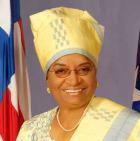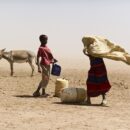Liberia: Cautious Optimism Rules – By Songhai Advisory

Songhai Advisory LLP is a bespoke business intelligence consultancy providing critical insight on market opportunities in Sub-Saharan Africa.
This has been an eventful year for Liberia by any stretch of the imagination. In August, the country attempted the first amendment to its constitution since 1984 and on 11 October it held its second set of democratic elections since the close of war in 2003. Second round presidential elections are now scheduled to take place on 8 November.
The going thus far has not been easy. Political institutions appear to be playing a game of catch up rather than setting the rules of the road; and in the shortfall key stakeholders have expressed serious doubts about the electoral process. Notwithstanding the presence of 9,216 United Nations peacekeepers, clearly the implications of an insufficiently robust settlement for Liberia’s political and security environment, and therefore economic performance would be serious. Prior to the 11 October polls, President Ellen Johnson Sirleaf herself expressed concern about “creeping electoral violence”.
And yet, there appears to be a cautious optimism among domestic and international observers alike. The IMF, for example, forecasts Liberian real GDP growth of around 7% in 2011 and 9% in 2012 on the back of expanding extractive industries and cash crop production compared to only 4% approx. growth globally. Sub-Saharan African as a whole is forecast somewhat higher at 5.2% in 2011 and 5.8% in 2012 but still lagging Liberia. Similarly indicative of confidence in the Liberian situation perhaps, as recently as 20 October the Japanese multinational Mitsubishi announced an agreement to take a ten per cent participation interest in Liberian offshore exploration block (LB-10).
View from the Ground:
“There are a lot of challenges but we think it will go well.”
Liberian NGO Director
“There were some irregularities but not enough to overturn the results… there is a general assumption that Ellen will be successful.”
Monrovia resident and local government official
Liberia’s New Dispensation
Since the Liberian Constitution creates a fairly powerful presidency, for example through powers of appointment, any new president can expect a certain freedom of movement in policy terms. However, there are important limitations. For example, treaties should be ratified by parliament. As such, whoever wins the presidency after 8 November will have to contend with an atomised legislature (as below):
| Provisional 2011 Senate Election Results | ||
| Party | 2005 (30 seats) | 2011 (30 seats) |
| Unity Party (UP) | 4 | 10 |
| Independents | 3 | 3 |
| National Patriotic Party (NPP) | 3 | 6 |
| Congress for Democratic Change (CDC) | 3 | 3 |
| Alliance for Peace and Democracy (APD) | 3 | 2 |
| National Union of Democratic Progress (NUDP) | n.a. | 2 |
| Liberty Party (LP) | 3 | 1 |
| Liberian Destiny Party (LDP) | 0 | 1 |
| National Democratic Coalition (NDC) | n.a. | 1 |
| National Democratic Party of Liberia (NDPL) | n.a. | 1 |
| All Liberia Coalition (ALCOP) | 1 | n.a. |
| Coalition for the Transformation of Liberia (COTOL) | 7 | n.a. |
| National Democratic Party of Liberia (NDPL) | 2 | n.a. |
| National Reformation Party (NRP) | 1 | n.a. |
| Provisional 2011 House of Representatives Election Results | ||
| Party | 2005 (64 seats) | 2011 (73 seats) |
| Unity Party (UP) | 8 | 24 |
| Congress for Democratic Change (CDC) | 15 | 11 |
| Independents | 7 | 9 |
| Liberty Party (LP) | 9 | 7 |
| National Union of Demoratic Progress (NUDP) | n.a. | 6 |
| NDC (National Democratic Coalition) | n.a. | 5 |
| Alliance for Peace and Democracy (APD) | 5 | 3 |
| National Patriotic Party (NPP) | 4 | 3 |
| Movement for Progressive Change (MPC) | n.a. | 2 |
| Liberian Destiny Party (LDP) | n.a. | 1 |
| Liberia Transformation Party (LTP) | n.a. | 1 |
| National Reformation Party (NRP) | 1 | 1 |
| All Liberia Coalition (ALCOP) | 2 | n.a. |
| Coalition for the Transformation of Liberia (COTOL) | 8 | n.a. |
| New Deal Movement (NDM) | 3 | n.a. |
| National Democratic Party of Liberia (NDPL) | 1 | n.a. |
Johnson-Sirleaf’s Unity Party (UP) has a stronger showing than in the previous parliament, but this remains an unwieldy body – one from which we may expect the same kind of extended debates and delays that affected key legislation over the past five years e.g. the population threshold bill, Monrovia Ports Concession ratification and the various budget bills.
| Presidential Candidate | Political Party | Votes | Percentage |
| Johnson-Sirleaf, Ellen | Unity Party (UP) | 530,020 | 43.93 |
| Tubman, Winston | Congress for Democratic Change (CDC) | 394,370 | 32.68 |
| Johnson, Prince Yormie | National Union of Democratic Progress (NUDP) | 139,786 | 11.58 |
| Brumskine, Charles Walker | Liberty Party (LP) | 65,800 | 5.45 |
Given that no presidential candidate won over 50% of the vote, the constitution demands a run-off. Although the CDC alongside eight other parties disputed the first round results and threatened to boycott, second round polls look more secure following the resignation of NEC chair James Fromayan on 31 October. The CDC demanded Fromayan’s resignation as a precondition to participating in the run off, accusing him of a UP bias and the NEC of electoral fraud. Additionally, Fromayan’s position became increasingly untenable following a botched electoral results communique sent to the CDC. In the race to form new electoral alliances, Johnson-Sirleaf looks to be leading, having already won backing from the former warlord Prince Johnson, as well as a number of minor parties already.






